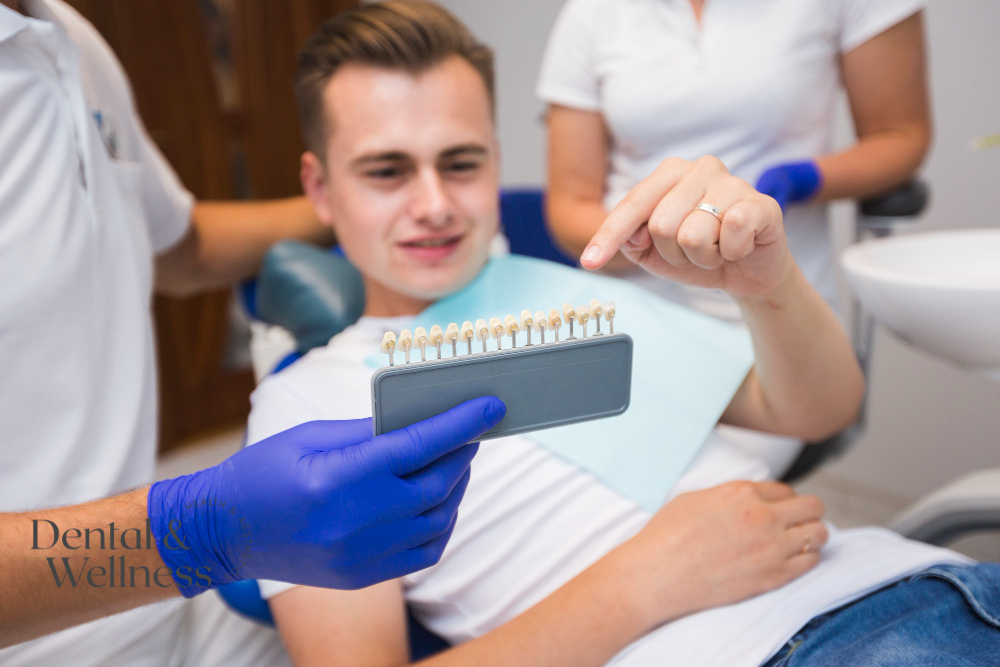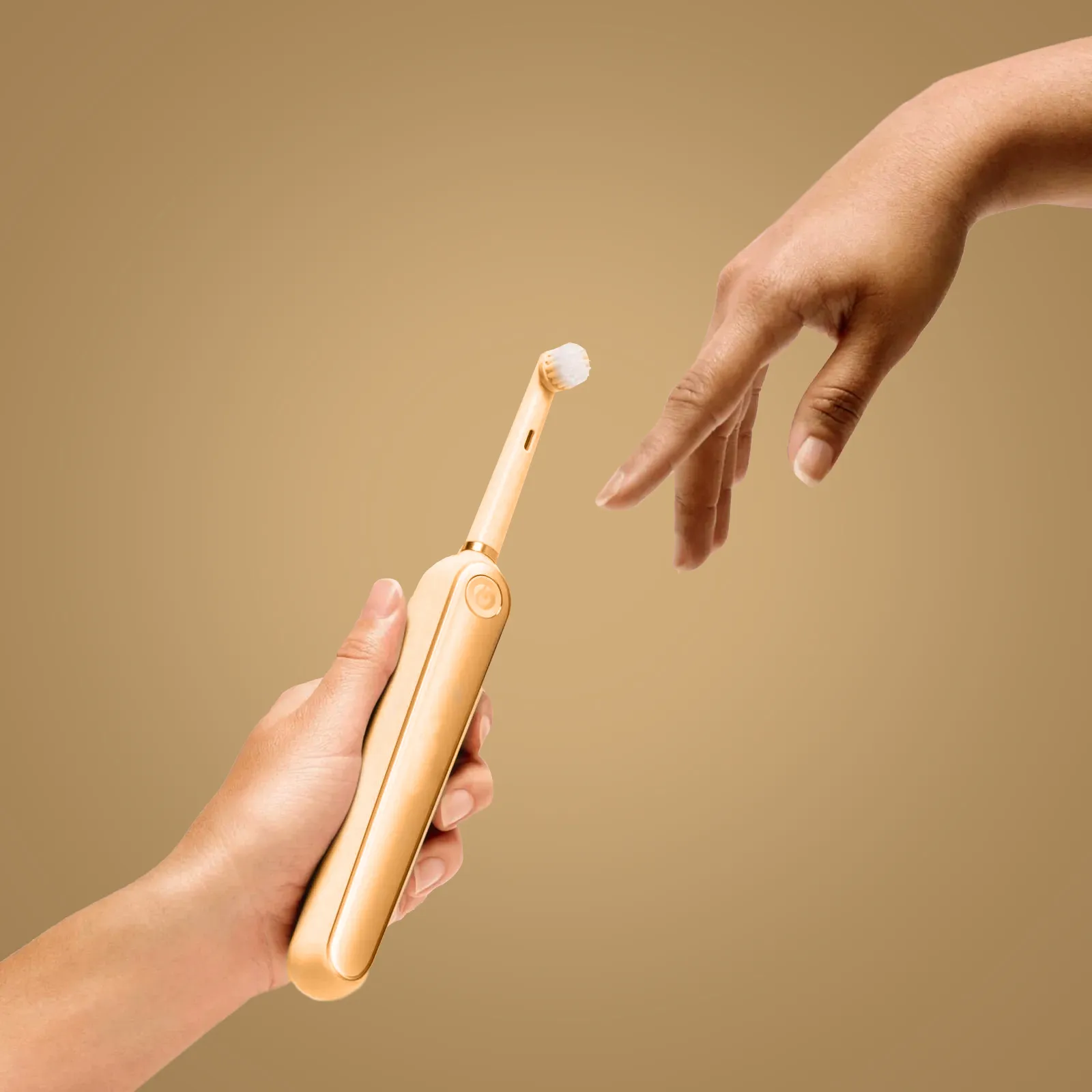- A chipped tooth happens when the hard outer layer (enamel) breaks off
- Kids and adults often chip teeth from accidents, sports, or chewing hard foods
- If the tooth hurts or shows signs of infection, see a dentist quickly
- Small chips may not hurt, but still need a dental checkup to avoid problems
- Large chips can be fixed with fillings, bonding, or a crown, depending on the damage
- To prevent chips, wear mouth guards during sports, and avoid chewing hard foods
- Taking care of teeth and avoiding grinding helps keep enamel strong
- Treating chips early stops pain and infection and keeps teeth healthy
- In dentistry these are classified as Class I, II or III fractures. To further explain, Class I fractures involve only the enamel, Class II would involve the dentine and Class III would cause dental pulp exposure.
What is a Chipped Tooth?
A chipped tooth is when a small part of the tooth breaks away, leaving it cracked or uneven. Sometimes the fillings, crowns, veneers or dental bridges can also chip. Please note that repairing these is different from repairing chipped teeth. It can change the way your smile looks and may cause discomfort or sensitivity. If left untreated, even a minor chip can cause problems such as tooth decay, infections, or further cracking. While this can be worrying, the good news is that dental care today offers many safe and easy solutions to fix it.
With the right treatment and prevention, your smile can look and feel as good as before. In this article, we will find out what causes teeth to chip, how dentists treat it, and the best ways to prevent it in the future.
What Causes a Chipped Tooth?
Before discussing the treatments, it is important to understand what leads to a chipped tooth. This helps people become more careful in their daily habits.
Here are the common causes of a chipped tooth:
- Biting Something Hard: Chewing on ice, hard candy, or nutshells can put extra pressure on your teeth, leading to cracks and chips.
- Accidents or Falls: A slip, a sports injury, or a sudden bump to the face may cause a tooth to chip.
- Teeth Grinding: Some individuals grind their teeth at night without realising it (bruxism). Over time, the constant pressure weakens teeth.
- Weakened Teeth: Teeth with cavities or old fillings may become weak and more likely to chip.
- Sudden Temperature Changes: Eating very hot food right after cold food, or vice versa, can stress the enamel (the hard outer layer of your tooth), increasing the risk of a chip.
Symptoms of a Chipped Tooth
Some common signs include:
- A sharp edge on the tooth that feels rough to the tongue
- Tooth sensitivity when eating hot, cold, or sweet foods
- Pain when biting down
- Visible crack or missing piece in the tooth
- Swelling inside the mouth if the tooth is badly damaged
- Soft tissue swelling or ulcers from the sharp edges of the broken tooth.
Quick Tip: Not every chipped tooth hurts, but even if there is no pain, you should see a dentist right away.

Why Should a Chipped Tooth be Treated?
A chipped tooth should not be ignored and treated because of the following reasons:
- For health: A chipped tooth can allow bacteria to access inner tooth layers, potentially causing infection or decay.
- For appearance: A chipped front tooth can affect your smile and make you less confident.
Treatment Options for a Chipped Tooth
Modern dentistry offers many safe methods for chipped tooth repair. The treatment depends on how severe the damage is and where the tooth is located.
Small Chips
For minor chips, dentists usually recommend simple fixes:
- Dental Bonding: A tooth-coloured resin is carefully applied to the chipped area and molded to match the natural tooth. This is a quick method without causing any pain.
- Polishing: If the chip is very tiny, the dentist may only smooth rough edges.
Medium Chips
When more of the tooth is missing, stronger restorative options are needed:
- Dental Filling or Bonding: Used for back teeth for moderate tooth damage
- Veneers: A thin, custom-made shell is placed over the chipped tooth to restore appearance and strength. Veneers are commonly used for visible teeth.
Large Chips or Severe Damage
If the chip involves a big portion of the tooth or reaches the inner pulp (innermost part with nerves and blood vessels), advanced treatments are necessary:
- Dental Crown: A protective cap is placed over the damaged tooth, giving it shape, strength, and protection.
- Root Canal Therapy: If nerves are exposed or infected, the dentist cleans the inside of the tooth before placing a crown.

Emergency Care for a Chipped Tooth
Sometimes a tooth may chip off suddenly, and pain follows right away. In such cases:
- Rinse your mouth with warm water
- Keep any fragments of the broken tooth, when possible
- Apply a cold pack to reduce swelling
- Visit a dentist as soon as possible
How Can You Prevent Your Teeth from Chipping?
Here are simple ways to keep your teeth strong and safe, preventing tooth chipping:
- Wear a mouthguard, especially helpful for kids and adults who play contact sports like volleyball or football.
- Avoid chewing hard items like pens, ice, or hard candy.
- Brush and floss your teeth every day to keep them healthy. This keeps the teeth strong and less likely to be damaged.
- Use fluoride toothpaste that strengthens the enamel and reduces the chances of cracks.
- Get regular checkups, since a dentist can spot weak teeth before they get chipped.
- Address teeth grinding by wearing special dental devices called nightguards. They protect your teeth against damage.
Final Takeaway
A chipped tooth is one of the most common and treatable dental problems. By understanding the causes, noticing early symptoms, and getting proper treatment, you can protect both your dental health and smile.
When it comes to safe and gentle care, Dental & Wellness London is a trusted dental clinic in Islington. Our specialists offer an extensive range of treatments to repair chipped teeth, including fillings, veneers, and crowns. Another simple method is dental bonding in Islington, which is often used to repair small chips and restore the natural look of your smile.
With years of experience, our team knows how to handle chipped teeth with precision and care. To book an appointment, you can contact us at 02081274567 or write to us at reception@dentalwellnesslondon.co.uk. You can also visit us at 222 Essex Road, London N1 3AP.
FAQs
How to fix a chipped tooth at home?
A chipped tooth cannot be fixed at home. You must see a dentist quickly for proper care. Meanwhile, gently rinse your mouth with warm salt water to clean it. Use a cold pack on the cheek to reduce pain and swelling. Avoid biting with that tooth.
Will a small chipped tooth smooth out?
A small chipped tooth will not fully heal or grow back because tooth enamel cannot repair itself. Sometimes, the rough edges may slowly wear down and feel smoother over months. But the chip will not disappear on its own. It is best to see a dentist to fix it safely and avoid pain or infection.
Can a chipped tooth grow back?
A chipped tooth cannot grow back naturally because tooth enamel has no living cells to repair itself. Once it chips, the missing part stays lost. You need a dentist to fix it safely.
What to do with a chipped tooth?
If a tooth chips, rinse your mouth gently with warm salt water to clean it. Apply a cold compress to help with discomfort. Keep any fragments of the tooth and visit your dentist as soon as possible. Avoid using the chipped tooth to chew. Cover sharp edges with dental wax to protect your mouth until a dentist fixes it.













